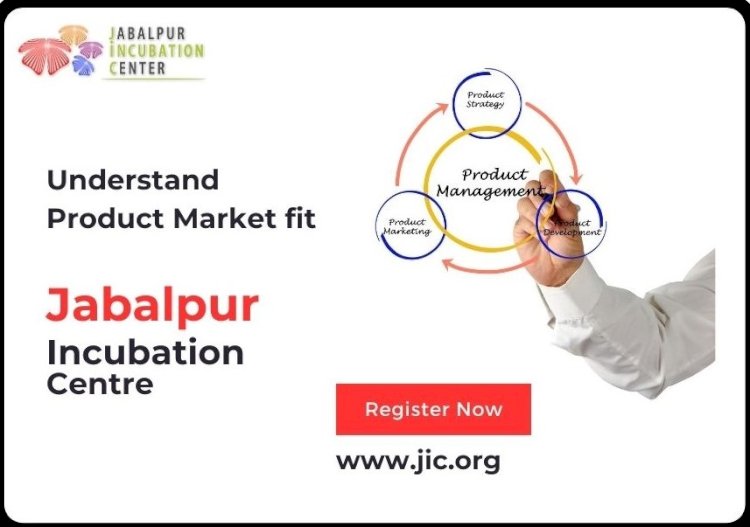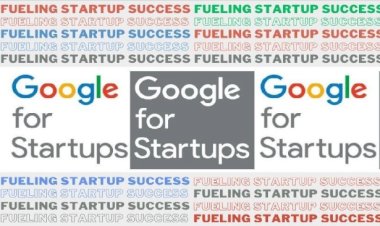Why Product-Market Fit Matters: Insights from Jabalpur Incubation Centre
Product-market fit, popularized by Marc Andreessen, is a crucial milestone in startups, determining if a product meets strong market demand. Jabalpur Incubation Centre has experienced its transformative power.

In the ever-evolving landscape of startups, achieving product-market fit is often hailed as a crucial milestone. This concept, popularized by venture capitalist Marc Andreessen, refers to the degree to which a product satisfies a strong market demand. At the Jabalpur Incubation Centre, we've witnessed firsthand the transformative power of product-market fit in turning visionary ideas into thriving businesses. Here’s why it matters and what insights we’ve gleaned from our experience.
Understanding Product-Market Fit
Product-market fit occurs when a startup's product meets the needs of its target market so well that the product essentially sells itself. It's the sweet spot where the demand for the product is so high that users are willing to pay for it, spread the word, and stick around for the long haul. Even the most innovative product can struggle to gain traction without this fit.
The Journey to Product-Market Fit
Achieving product-market fit is often a journey rather than a destination. Here are some key steps and insights from startups at the Jabalpur Incubation Centre:
1. Identify a Real Problem
One of the first steps in finding product-market fit is identifying a real problem that needs solving. Startups that succeed often begin by deeply understanding the pain points of their target audience. At Jabalpur Incubation Centre, we encourage startups to engage in extensive market research, surveys, and direct conversations with potential users to uncover pressing issues.
2. Iterate and Pivot
Rarely does a startup hit the nail on the head with its first product iteration. Iteration based on user feedback is crucial. We've seen startups pivot—sometimes drastically—from their initial ideas to better align with market needs. Flexibility and a willingness to adapt are vital components of the journey to product-market fit.
3. Minimum Viable Product (MVP)
Launching an MVP allows startups to test their hypotheses with minimal resources. This approach helps in quickly validating assumptions and understanding user preferences. At Jabalpur Incubation Centre, we emphasize the importance of getting an MVP into the hands of users as quickly as possible to gather actionable insights.
4. Listening to Users
User feedback is the compass that guides a startup toward product-market fit. Startups that actively listen to and incorporate user feedback into their development process tend to achieve fit faster. Regularly engaging with users through interviews, surveys, and usability tests can provide invaluable information.
Case Studies from Jabalpur Incubation Centre
Several startups at Jabalpur Incubation Centre have successfully navigated the path to product-market fit. Here are a couple of noteworthy examples:
Startup A: Revolutionizing Agritech
Startup A began with the mission to improve crop yield for farmers through innovative technology. Initial feedback revealed that farmers needed a more user-friendly interface and localized support. By iterating on these insights, Startup A developed a tailored solution that resonated deeply with its target market, leading to widespread adoption and significant growth.
Startup B: Healthtech Innovations
Startup B aimed to provide accessible healthcare solutions in rural areas. Initial trials showed that while the technology was sound, the delivery model needed adjustment. By pivoting to a community-based approach and leveraging local health workers, Startup B achieved a product-market fit that not only improved health outcomes but also scaled rapidly.
The Impact of Product-Market Fit
When a startup achieves product-market fit, the results can be dramatic. User acquisition becomes easier, customer retention improves, and the foundation for sustainable growth is established. At Jabalpur Incubation Centre, we've seen startups transition from struggling ventures to market leaders by focusing relentlessly on achieving and maintaining product-market fit.
Conclusion
Product-market fit is not a one-time achievement but an ongoing pursuit. Startups must continuously evolve to meet changing market demands and stay ahead of the competition. The journey to product-market fit requires dedication, adaptability, and a deep understanding of the target market. At Jabalpur Incubation Centre, we remain committed to supporting startups in this critical journey, helping them transform innovative ideas into impactful businesses.
Understanding and achieving product-market fit is essential for any startup aiming for long-term success. By following the insights and strategies outlined above, startups can navigate this challenging but rewarding path, ultimately creating products that truly resonate with their market and drive sustained growth.
























